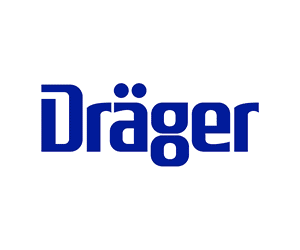
25th March, Blyth, UK – Dräger Safety UK, part of The Dräger Group, an international leader in the fields of medical and safety technology, has welcomed today’s publication of the Parliamentary Advisory Council for Transport Safety’s (PACTS) report into the use of interlock devices. The report, “Locking out the drink driver. Using alcohol interlocks to reduce drink driving in the UK“, has concluded that using interlock devices within a rehabilitiation programme is an effective way to reduce drink driving and it further recommends the government should consult on proposals to introduce a UK alcohol interlock programme as soon as possible.
Graham Hurst, Marketing Manager Impairment at Dräger said: “We welcome the conclusion of PACTS’s extensive study into interlock devices. The annual drink driving figures show that the deaths caused by drink impaired drivers has been static for the past decade so we believe that the time is right to try something different to reduce these avoidable fatalites. The experience of our colleagues in countries which already incorporate interlock devices into rehabiliaton programmes is that they have a clear impact on deterring drink driving.
“YouGov research which we commissioned last year, showed that there is wide public appetite for interlock devices to be fitted to offenders vehicles before their driving licence is returned, particularly for repeat offenders. More than four in five respondents (83%) said they would support this and more than half (56%) agreed they should be introduced for first time offenders. This public endorsement and the publication of today’s report, suggests that there is a recognition that we need to take action to stop persistent offenders putting other road users at risk.”
Interlock devices are fiitted into a vehicle and require the driver to take a breathalyser test before the engine will start. There are mechanisms available to prevent circumvention of the system and when installed mean that if a driver is over the limit, they will not be able to drive their vehicle.
Graham Hurst continued: “There is a misconception that it is easy to ‘trick’ an interlock device and to deceive the system. However, in reality this is virtually impossible as the technology used is very sophisticated. We believe that our Dräger Interlock 7000 with camera, which can easily be installed into a vehicle, is the ultimate element to prevent those trying to get around the system. This requires facial recognition in order to accept the test. These cameras are fitted with infrared technology to ensure good image quality, regardless of whether it is day or night.
“Another example of Dräger’s Interlock device sophistication is the temper-proof data log which can only be accessed by authorised persons. The device can be equipped with a mobile data transfer module which transmits information on certain pre defined events, such as an attempt to start the engine under the influence of alcohol, and these events are transmitted automatically to a responsible person via a phone network .
“Finally the device has reliable measurement technology which is very precise and able to detect whether the alcohol detected in the sample is breath alcohol from the consumption of alcoholic drinks, or mouth-only alcohol from a substance like mouth wash.”
More detail on interlocks and the YouGov research findings can be found at
https://www.draeger.com/en_uk/Safety/Vehicle-Fleet-Safety
– 82% of respondents who own a driving licence and consume alcohol support the introduction of alcolock devices for passenger transport such as buses and coaches.
– A similar figure (83%) would support the introduction of these devices for repeat drink drive offenders.
– At the same time, more than half of respondents (55%) would drive after consuming alchohol and a third (35%) would drive as usual the morning after a night out.



